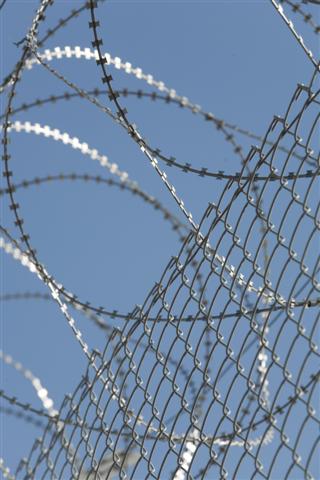 The program was created because of a need for skill and job training for incarcerated individuals.
PHOTO: SHUTTERSTOCK |
Monterey County has completed a fourth course in an ongoing forklift training program for inmates at the jail in Salinas.
"This is a special class because it is for our sentenced female inmates," says Sgt Fabian Hernandez, who oversees inmate and program services for the county sheriff's office.
Forty male and female inmates have graduated from the program since its inception in December 2007. Portions of the 30-35 hours of training occur in hands-on operation of a county-maintained Clark forklift with a lifting capacity of 4,000 pounds (1,800 kg).
"This program was created because of a need for skill and job training for incarcerated individuals," Hernandez says. "Most of our sentenced inmates don't have any skills."
Any inmate sentenced to serve time in the county jail has an opportunity to sign up for our program. "We do look at the severity of the crime and their behaviour while in custody before we allow an individual to participate," Hernandez says. Typically, nine to 12 persons take part in each course.
"There is no (additional) cost to the county or student," Hernandez reports. "This program was incorporated into our daily agenda in our programs unit. It is taught by our own county employee at the jail."
Skills instructor Jim Dominguez at the private non-profit Center for Employment Training (CET) trained and certified Robert Pulido in a two-week train-the-trainer course.
As senior inmate service specialist, Pulido instructs each forklift training course in the jail. In addition to the Clark forklift, Pulido utilises a training safety video from JJ Keller & Associates and CET training guides.
Students learn about forklift safety, daily inspection requirements, preventive maintenance, use of forklift controls, identification of operational parts and trouble shooting. They use a forklift obstacle course and need to pass a final review and safety quiz.
A CET certificate is given to each successful participant who upon release from custody can go through a CET centre in Soledad, California for additional instruction and an opportunity to obtain an operator's licence.
"We encourage them to enrol in our full shipping, receiving and warehousing course," says Diana Carillo, CET regional director.
The forklift training program started without funding, Carrillo confirms. "We should be doing something. What if we get staff from the jail and train over here? It took a lot of effort to make the change" and implement the program.
County Supervisor Jane Parker commends the program and provides certificates of recognition to successful participants. "I have a particular interest in rehabilitation and helping people get the skills they have not had an opportunity to get up to this time," she says. Parker represents Del Rey Oaks, Marina, Sand City, Seaside and south west Salinas and is the county board's alternative representative to the Community Alliance for Safety and Peace.
The most recent course led to a 12 May graduation for nine female participants including two inmate service specialists, Ramona Hewett and Brenda Cuevas.
"The Monterey County Sheriff's Office strongly believes in training programs for our sentenced inmates," Hernandez says. "Part of our strong desire is to lower the recidivism rate in our county." Hernandez is unaware of any similar forklift training program in northern or central California.